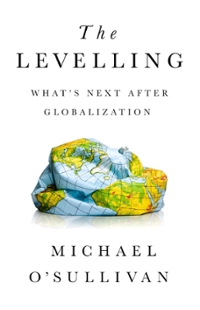Consider a market for a homogenous product with four active companies. Consumers value the product at 170 dollars and buy at most one unit. The
Consider a market for a homogenous product with four active companies. Consumers value the product at 170 dollars and buy at most one unit. The total number of consumers in the market is fluctuating. In any given period, demand is high with probability 1/4 and there are 40 potential customers. With probability 3/4, demand is low and there are 20 potential customers. Firms know the current demand level but not the level of demand in future periods. They compete in prices with an infinite horizon. Suppose all firms face the
same cost function C(q) = 10g and the same discount factor 8 with 0 < 8 < 1.
(a) (10 marks] Construct a subgame perfect equilibrium of the infinitely repeated price game in which the companies charge the monopoly price in each of the two states of demand and use trigger strategies with indefinite reversion to the static Nash equilibrium.
Show under which conditions this equilibrium holds. Explain your calculations. In which state of demand is it harder to sustain the cartel?
[b. 10 marks] Suppose the discount factor of all firms is = 3/4. For this value, collusion would not be sustainable with the strategies you specified in (a). Construct a subgame perfect equilibrium of the infinitely repeated price game in which the firms charge the monopoly price in low demand states and a price p in high demand states and use trigger strategies with indefinite reversion to the static Nash equilibrium. Give the highest price p, for which this equilibrium is sustainable. Explain your calculations.
c. Now assume that firms are unable to observe the current and future demand level when setting their prices. They know in each period there is high demand with probability 1/4 and there are 40 potential customers. With probability 3/4, demand is low and there are 20 potential customers. Assume the same cost function as above and a discount factor 8 with 0 < 8 < 1. Construct a subgame perfect equilibrium of the infinitely repeated price game in which the companies charge the monopoly price in every period and use trigger strategies with indefinite reversion to the static Nash equilibrium. Show under which conditions this equilibrium holds.
d. Explain the difference of your results in (c) relative to vour results in sub-questions (a) and (b). Suppose firms obtain their current period demand information in
(a) and (b) from predictive algorithms. What the results suggest regarding the effect of demand prediction algorithms on the sustainability of cartels?
Step by Step Solution
There are 3 Steps involved in it
Step: 1

See step-by-step solutions with expert insights and AI powered tools for academic success
Step: 2

Step: 3

Ace Your Homework with AI
Get the answers you need in no time with our AI-driven, step-by-step assistance
Get Started


